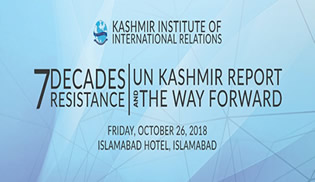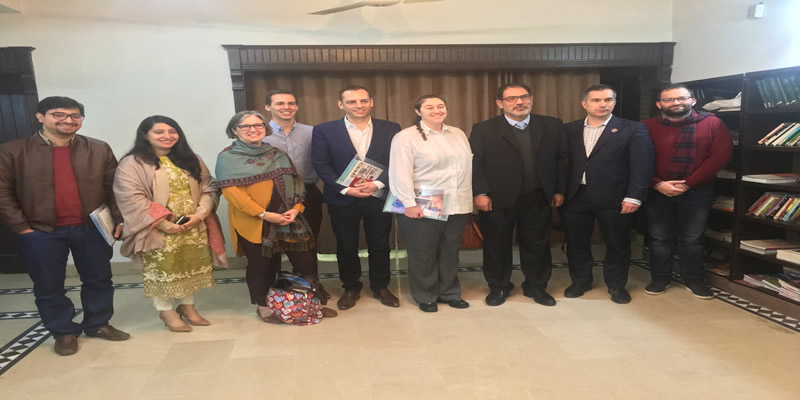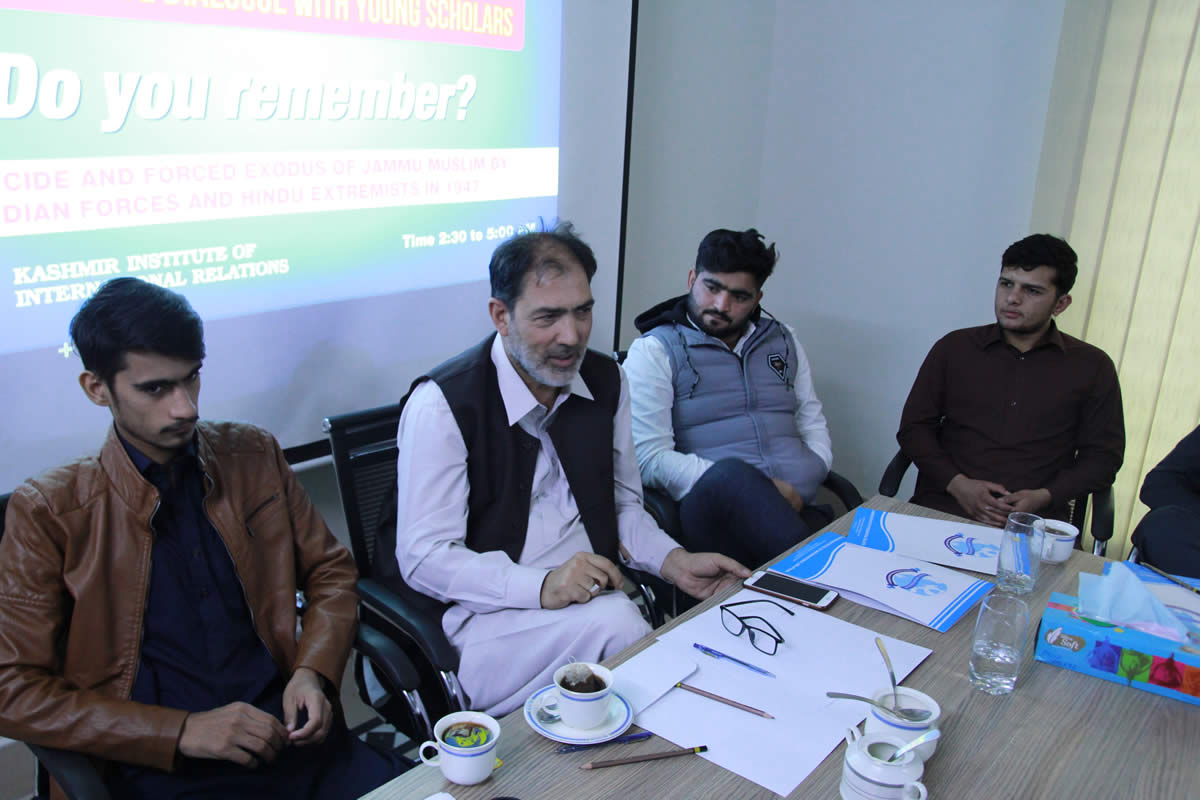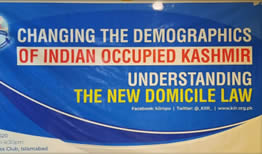Forgotten Massacres: Remembering the Victims of Chotta Bazar Massacre of 11 June 1991
“Forgotten Massacres: Remembering the Victims of Chotta Bazar Massacre of 11 June 1991”
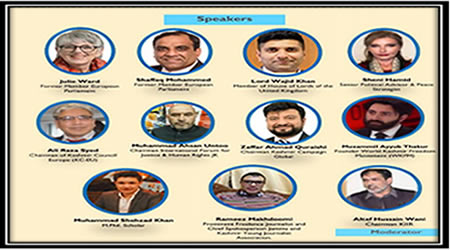
A webinar “Forgotten Massacres:
Remembering the Victims of Chotta
Bazar Massacre of 11 June 1991 ”, was
organized by Kashmir Institute of
International Relations (KIIR), dated
June 11, 2021, constituted of the
profound panelists, i.e, Muhammad
Ahsan Untoo: Chairman International
Forum for Justice and Human Rights JK,
Sheni Hamid: Political & Peace
Strategist & Human Rights Defender, Ali
Raza Syed: Chairman of Kashmir
Council Europe (KC-EU), MEP
(Member of European Parliament) Julie Ward, former MEP Shaffiq
Mohammad, Lord Wajid Khan, Zaffar Ahmed Quraishi Chairman Kashmir Campaign Global,
Muzamil Ayyoub Thakur, Muhammad Shehzad Khan, Rameez Mukhdoomi chief
spokesman Jammu and Kashmir Young Journalist Association and Altaf Hussain Wani:
Chairman KIIR.
Concept Note
Indian Occupied Jammu & Kashmir in the throes of the worst bloodbath and miseries since 1947. More than 237,000 Muslims were exterminated in the months of Oct-Nov 1947, which reduced the muslim population in Jammu region from 61% to 33%. This was the first genocide after World War II on such a massive scale. In the past 73 years more than 500,000 people have lost lives to Indian tyranny and state sponsored terrorism. The massacres against Muslims include: Jammu Massacre, Gawakadal Massacre, Kishtwar Massacre, Sopore Massacre, Handwara Massacre, Hawl Massacre, Zakoora and Tengpora Massacre, while this list includes dozens of entries, it is by no means complete. The murderous campaigns against Muslims by the Indian government continue to this day. On June 11, 1991, at least 28 people were killed by the CRPF’s indiscriminate firing at shopkeepers, passersby, not even sparing women and children. By the time their guns ceased to boom in the adjacent Chota Bazar locality, dozens of innocent civilians were killed in what remains one of the forgotten massacres in Kashmir’s 30-year turmoil- Chotta Bazar Massacre.
Webinar Report Minutes
The webinar was moderated by Altaf Hussain Wani: Chairman KIIR. He formally opened
Concept Note
Indian Occupied Jammu & Kashmir in the throes of the worst bloodbath and miseries since 1947. More than 237,000 Muslims were exterminated in the months of Oct-Nov 1947, which reduced the muslim population in Jammu region from 61% to 33%. This was the first genocide after World War II on such a massive scale. In the past 73 years more than 500,000 people have lost lives to Indian tyranny and state sponsored terrorism. The massacres against Muslims include: Jammu Massacre, Gawakadal Massacre, Kishtwar Massacre, Sopore Massacre, Handwara Massacre, Hawl Massacre, Zakoora and Tengpora Massacre, while this list includes dozens of entries, it is by no means complete. The murderous campaigns against Muslims by the Indian government continue to this day. On June 11, 1991, at least 28 people were killed by the CRPF’s indiscriminate firing at shopkeepers, passersby, not even sparing women and children. By the time their guns ceased to boom in the adjacent Chota Bazar locality, dozens of innocent civilians were killed in what remains one of the forgotten massacres in Kashmir’s 30-year turmoil- Chotta Bazar Massacre.
Webinar Report Minutes
The webinar was moderated by Altaf Hussain Wani: Chairman KIIR. He formally opened
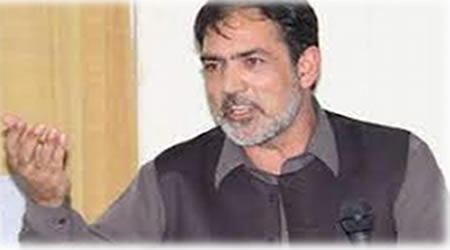
the
session by introducing the subject of webinar, “Forgotten Massacres: Remembering the
Victims of Chotta Bazar Massacre
of 11 June 1991”, arranged by KIIR.
He thanked all the panelists and
speakers for joining the webinar. He
briefed the Chotta Bazar Massacre to
the audience, attending the webinar.
He threw light upon the Indian
government’s consistent apartheid
towards the Muslim community in
India since 1947, specially from last 33 years, particularly in Indian occupied Jammu & Kashmir.
He lightly touched upon the eleven heinous massacres that occurred in Kashmir previously. While
having said that, he elaborated that Chotta Bazar massacre was amongst them but a forgotten one,
so this webinar is to remember the victims of Chotta Bazar Massacre, which was termed as one of
the deadliest mass killing incidents that have taken place in IOJK since 1990. In addition to that,
he also called out the martyrdom anniversary of Tufail Mutoo, a minor who was targeted by the
Indian security forces when he was going to tuition, whose death instigated a huge uprising in
Kashmir in 2010, resulting casualties around 138 teenagers who were shot by the pellet guns.
Besides that, he also talked about the chaos in Indian occupied Kashmir, which occurred after the
unilateral decision taken by Indian government to abrogate the article 370 and 35 A of Indian
constitution on August 5, 2019, resulting the dismantling of Jammu & Kashmir state, amendment
of new colonial settler policies in Kashmir and other demographic changes.
Rameez Mukhdoomi:
Rameez Mukhdoomi:
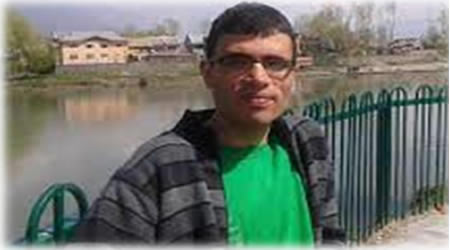
Chief spokesman Jammu and Kashmir Young Journalist Association. After introducing himself to the panelists, he recounted the heinous massacres that occurred in
Chotta bazar, Handwara and many
other areas of Jammu & Kashmir,
which are surely condemnable. He
stated that the Indian security forces
had filled these regions with blood and
oozing tears since the last three
decades. He explicitly said that people
of Kashmir are definitely unable to
project their misery and sufferings as
the people of Palestine have successfully, on the world stage. He declared that in spite of having a
strong diaspora, Kashmiris have failed to have the world conscience towards the Kashmir issue
and the other factors also contributed to this cause like lack of freedom of speech of journalists.
Makhdoomi stated that Indian state is very rigorous towards Jammu and Kashmir, resulting in the
lack of vocal contributions regarding human rights violations from the region. He highlighted how
freedom of speech has been curtailed on beyond levels since the last two years due to the
revocation of article 370 and 35 A of Indian Constitution and stringent curfews lodged in IOK.
Besides this, he also talked about numerous mysterious powerful stakeholders, who are
undermining the Kashmiri media and journalists. He undoubtedly claimed that Tufail Mutoo was
also martyred by the Indian security forces because he was very vocal about the heinous war crimes
occurring in IOK and wanted to use his right of freedom of speech to open up about the Indian
extremist agendas regarding Kashmir. Moreover, he said that Tufails’s death somehow shattered
the determination of his father and brought the cycle of other deaths, leading to massacres in 2010
in which almost 138 boys got killed, thousands lost their eyesight due to indiscriminate firing of
pellet shots by Indian security forces and it was Tufail death, that introduced Kashmir with a
widespread use of pellets, unheard in the human history ever.
Furthermore, he declared that although there is hope, there is a widespread hopelessness in
Kashmir. He mentioned the unheard phenomena of suicides which is going rampant in Kashmir,
leading people to lose their will to survive in Kashmir due to mental peace disruptions and long-term unresolved conflict. Makhdoomi believed that Pakistan’s Prime Minister Imran Khan will
use his leadership to galvanize the world opinion regarding India-Pakistan and Kashmir
correlation. He also touched on the harsh and dreadful action of abrogating article 370 by Indian
government, after which due to rampant internet siege, curbs on media and other restrictions,
freedom of speech is almost equal to zero in Kashmir. Lastly, he showed his concerns towards
another heinous agenda of Modi Sarkar to take South valley and Chenab under administrative units
which would be catastrophic not for the peace of Jammu and Kashmir but for the whole South
Asia. he concluded his remarks by suggesting the Friends of Kashmir, Pakistan and Organization
of Islamic Conference, to activate themselves and speak for the rights of people of Kashmir on
national and global forums.
Lord Wajid Khan
Lord Wajid Khan
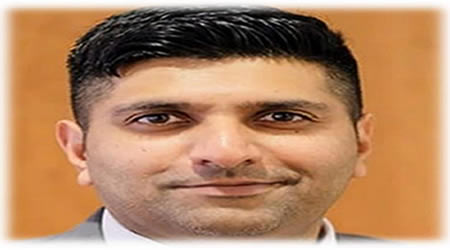
thanked Chairman KIIR Altaf
Hussain Wani and KIIR for inviting him at such an
event to commemorate the victims of Chotta Bazar
Massacre in 1991 and all other massacres. He
appreciated Rameez for briefing the ground realities
in Indian occupied Kashmir and totally condemned
all human rights abuses committed by Indian
authorities in IOK. He further talked about how the
resilience of Kashmiri people keeps on going for 70
years now in a hope for a better future. He stated that
indeed India has been facing a horrendous rise in
covid deaths recently thus providing an opportunity for Modi sarkar to bring peace in the region.
He urged Pakistan and India to have bilateral table talks and engage in diplomatic ties while
keeping Kashmir in mind as a center stage and cause. He declared that diplomacy could be the
only sustainable long-term solution for the Kashmir issue.
While encouraging diplomacy as a promulgator of peace, he himself has been engaged in
accumulating voices from the Kashmir diaspora in the UK parliament to pressurize the UK
government to do more to provide peace in the region. Moreover, there is an opportunity for human
rights activists and journalists to highlight the abuses, problems and challenges for Kashmiri
people in Kashmir. In the second place, he said that we have to remember those who lost their lives to Kashmir cause, we have to internationalize the issue and maintain the pressure on the
global community to take action. He suggested that those testimonies regarding the Freedom of
expression and media suffocation should be documented and supplied to the higher authorities
internationally. While for Kashmiri diaspora, he suggested that we have to arrange meetings and
conversations with Special rapporteurs at the UN. He lastly appreciated Altaf Hussain Wani for
single handedly working for the people of Kashmir and raising voices at UN Geneva human rights
council for the acceptance of the right of self-determination. He declared India’s autocratic heinous
policies as a Black dodge in democracy, as they keep on attacking women and children,
disappearing people, killing people across the border under the shelter of AFSPA and PSA.
Muhammad Ahsan Untoo:
Muhammad Ahsan Untoo:
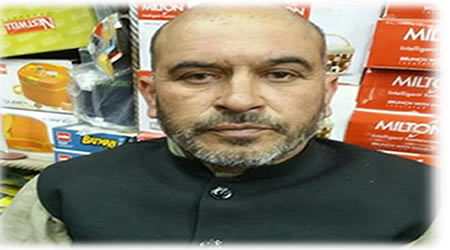
Chairman International Forum for Justice and Human Rights JK, briefly explained the incident of Chotta Bazar massacre, which happened on 11 June, 1991, which actually was a result of firing on CRPF personals in Nazwakadal, 1 and half km away from chotta bazar. He described that after this incident, CRPF forces went to chotta bazar and blindly opened fire on civilians, in which 41 persons were killed and numerous shops were burnt, amongst whom, 28 persons were identified. He hopelessly briefed that till 1991, no fir had been lodged against this massacre even after more than 150 notices had been written to the human rights commission to which Indian government had not responded. He then elaborated details of massacres enlisting, 6th January, 1993 Sopore massacre, 1st January 1991 Nawakadal massacre, 25th Jan Handwara massacre, 27th Jan Kupwara massacre, 21st May Hawal massacre, 19th Nov 1992 nawakadal massacre, 1 sept Handwara 2nd massacre, 8 May 1991 Khanyar massacre, 22nd sept 1993 Bijbehara massacre, Zakoora 1991 massacre, and many more. In addition to this, he said that the detailed documents of these massacres had been taken to SHRC and sent to all Human Rights Commissions, International Amnesty and Human Rights watchdog, but there were no results. Moreover, he narrated the Kupwara 27th Jan 1990 massacre referred to by the CID report, published in May 2012, in which, CRPF opened fire at a public bus station, resulting in numerous casualties under General Bakshi authorization in Kupwara, in which 18 innocent people were killed and 38 were injured, even after Kupwara police had filed FIR against this case, in 1997, this case was shut down due to uncooperative army officers. Furthermore, he disclosed that who so ever raise voice for seeking justice has been kept in jail and torture by Indian security forces, as he himself was charged under PSA after 5th August 2019 and kept in central jail then Tamil nadu, released after 11 months. And then he was kept in Tihar jail for 6 years in 2004 and in 1997 also, he was detained for raising his concerns over freedom of speech. Having said that, he demanded justice and accountability for the 139 people who were killed in 2010 and no hearing has been heard till now. He lastly enquired why international organizations and human rights defenders failed to provide justice and right projection of this issue.
Zaffar Ahmed Quraishi,
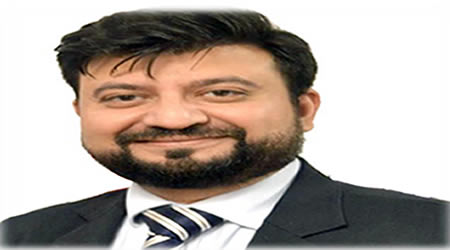
Chairman Kashmir Campaign Global, appreciated Ahsan untoo and Lord Wajid for intellectually putting together, why we are here, why the world is pretending to be living in peace and unity, in spite of having a catastrophic situation in IOK. He revealed that Covid 19 has brought the world to realize the importance of freedom and affection from which the people of Kashmir are still deprived of. He stated that unfortunately the people of Kashmir continue to suffer under the same camouflage that India is the greatest democracy and working to resolve covid crisis but in Kashmir, they are using covid as an excuse to impose more stringent lockdowns as in Kashmir today, the districts of Baramulla are completely under lockdown. He threw light upon the recent news emerging from Kashmir that there is more deployment of armed troops the troops, there is a delimitation of the areas of Jammu and Kashmir and how India is continuing to change the demography of Kashmir, exterminating Muslims from Kashmir and bringing more Hindus to the areas to develop a settler colony. As a matter of fact, he related that the history of Kashmir is full of massacres like Chotta Bazar which instill fear in people of Kashmir however the people are becoming more resilient, steadfast and determined to carry the freedom struggle. He declared that the story of Kashmir is nonetheless full of violence and massacres, terribly carried out by the Indian brutal forces, backed up by the draconian laws, such as AFSPA and PSA, which grants them complete impunity against any crime they do to innocent people of Kashmir, and yet not being held accountable, by committing thousands of killings carnages, not even one perpetrator has held accountable He stated that, at this point, it is the duty of world community that pretends to maintain democracy, peace, to come together to face the reality, and see what's happening in kashmir and stop the bloodshed, as this issue doesn't only belong to people residing in kashmir but this impacts the whole world. Indeed, resolution will lead to peace in South Asia and the globe. He highlighted that due to lack of information and true facts provided via media in Kashmir, they might get confused and anxious for not getting any support from the world but he assured the people of Kashmir that most of the world community is standing in solidarity with Kashmir and their right to self-determination.
Sheni Hamid:
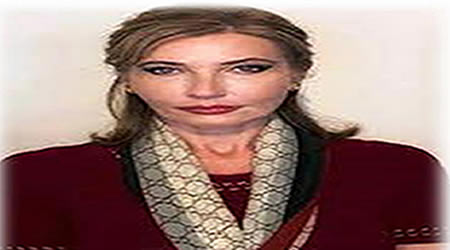
Political & Peace Strategist & Human
Rights Defender, offered her prayers for the victims of
Chotta bazar, who lost their lives on 11 June, 1991 in
Indian occupied Jammu and Kashmir. She declared that
this was one of the bloodiest massacres carried out by the
Indian occupation representatives. She said that 30 years
have been down and we are still seeking justice and peace.
She lightly touched the Indian draconian laws, AFSPA
and PSA, due to which the Indian troops managed to
escape accountability. She presented that this Indian
authorities’ physical action is a deliberate act of genocide
according to the United Nations Genocide Convention.
Moreover, she said that however to resolve the issue of
Kashmir, we need to remember that taking actions for deliberation of Indian occupied Jammu and
Kashmir is one matter and actions taken for the lawful seeking justice for the victims of the region
is another matter and each matter requires specialized planning, action, progress, control,
determined collaborations and precise implementation. She declared the Chotta Bazar massacre as an act of genocide, thus consequently we will continue our dedication to show evidences regarding
this genocide, which will open the doors of International Criminal Court. She added that while
taking these steps, we will use the facts that India is a member state of United Nation, United
Nations Security Council and India has committed to the United Nations Genocide Convention
and additionally India has also ratified Geneva Convention, even so, 30 years ago, some Indian
representatives had committed war crimes and acted against Genocide convention and Geneva
convention in Chotta Bazar. She suggested that as global human rights representatives, we have to
consistently submit evidence to ICC and ICC must certainly reconsider the case under the principle
of complementary, as ICC can investigate individuals from nonmember states, it might open
investigations in occupied territory and demand India to accept ICC jurisdiction. She concluded
her speech by reminding all that, we must not forget that sooner or later justice will be served.
Shaffaq Muhammad,
Shaffaq Muhammad,
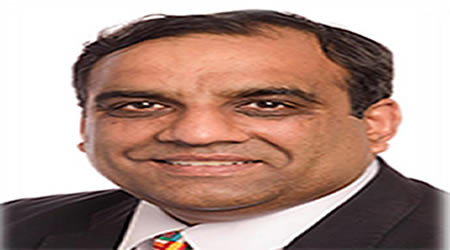
elaborated that during these
covid times, the world has learnt what the lockdown
means, taking away the right to meet your friend, go
about to do your business and how the Kashmiri
people have been facing these lockdowns for decades.
He said that the chotta bazar massacre is indeed a
forgotten one. He referred to the one that happened in
South Africa on 21st March, 1960, where 69 people
were killed by the authorities and would be
remembered by all people over the globe because of
its popularity. He urged the people of Kashmir to keep
faith, indeed time has passed but it does not mean that
justice is no longer required for the victims of chotta
bazar. He said that we have to drag both military and political leadership into this matter.
Furthermore, he elaborated the levels of media coverage Palestine is getting as compared to that
of Kashmir, which is why we need to educate our Kashmir born friends to be vocal about the
human rights abuses in Kashmir. He suggested that we have to pressurize the Modi government to
repeal his extremist agendas regarding Kashmir and challenge our governments about maintaining
human rights sustainability all across the world. He further instigated that though Indian media is in the pockets of BJP government, which is ultimately restricting the voices of Kashmiris,
Kashmiris have to be very vocal about this issue and get their videos viral through different
platforms, which would surely embarrass European Union MPs those who support the BJP
government. He suggested that we have to name and shame and bigot these individuals who under
the banner of AFSPA and PSA get away with their criminal records without any accountability.
Ali Raza Syed
Ali Raza Syed
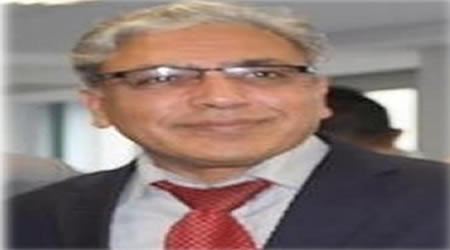
declared the Chotta bazar massacre
as the one of the bloodiest massacres in the history
of Kashmir. He explained how Indian authorities
are still killing the people of Kashmir in different
forms. He said that while having various narratives
regarding the Kashmir issue, the international
community has been confused due to multiple
narratives. While having said that, he stated that the
international organizations are surely aware of
what is happening in Kashmir and European Union
Kashmir Council has been always trying to convey
the reports, messages and facts regarding the issue,
from Indian occupied Kashmir to the authorities
and institutions based in Brussels. He also referred to the UN High Commission Reports published
in 2018 and 2019, voicing the human rights violations in IOK. Moreover, why are we not getting
the desirable results? He suggested that we need to build one narrative regarding Kashmir which
is foremostly the attainment of the right of self-determination and to protect the human rights of
Kashmiris. He recounted that almost 3.4 million fake domiciles in IOK have been granted to non
kashmiris and we are expecting more heinous policies from this fascist Modi regime. In addition
to that, he said that in European Union, they do think about Indian policies especially after the
introduction of an alarming amendment in CAA in India and after 5th Aug. 2019, the 1st session
of EU parliament after holidays which was on 2nd sept, the Kashmir issue was on top of the
meeting agenda. He also referred to the statement issued by the Human rights chairperson Maria
Rena regarding the human rights abuses in IOK. He lastly presented that to find a permanent
solution, we have to take Kashmiris on board, we have to respect their views, interests, ideas and concepts as Kashmiris always want to maintain peace not only for themselves but for Pakistanis
and Indians, their aspiration for freedom and right to self-determination should be respected.
Julie Ward
Julie Ward
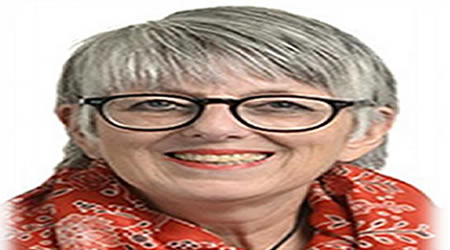
declared this anniversary as a serious and sad day. She stated that indeed it is important to keep alive the cause of Kashmir by remembering the victims of chotta bazar massacre which happened 30 years ago, where the civilians were busy doing their daily chores and they got attacked by the CRPF which was horrendous in nature. She condemned the behavior of paramilitary forces who shot indiscriminately on women, children and youth, which is very shameful in nature. She further said that there is no peace without justice and we must continue to respect and grant a platform to these kinds of horrific anniversaries. Besides this, she also talked about the oppression minorities are facing in India by Indian authorities. She claimed that the horrendous right wing populist Indian government does not even care about its citizens. She expressed her solidarity with the people of India, Palestine and Kashmir who are on receiving ends and all the oppressed people around the world. She said that unfortunately the situation in IOK does not make it to the headlines of enormous channels and this topic is not studied or talked about in universities, debating groups, peace and conflict groups, therefore people have no awareness regarding this issue but there are certain channels who keep supporting this issue. She announced that in the EU parliament, they have voted through a resolution to support the United Nations binding mechanism on human rights agreements. She urged all to talk about the human rights protection around the globe as they are unconditional and universal. She lastly emphasized that the UK should not make any trade deal with India while the conflict is unresolved as this is a matter of the world where we have two major nuclear armed states in disagreement with each other having the most militarized border and hundreds and thousands of people getting affected by the conflict.
Muzammil Ayyub Thakur,
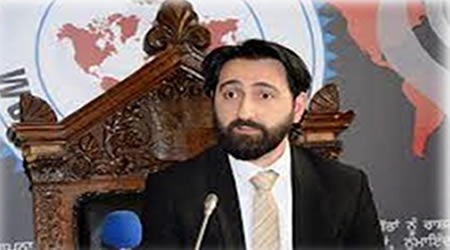
described how Indian media channels, not just via TV channels but also through social media platforms are generating ambiguous campaigns to discredit genuine voices from Kashmir, who are representing the real cause of Kashmir and exposing the Indian authorities, involved in human rights violations, ethnic cleansing and genocide in Kashmir. He explained that numerous rumors get passed through these campaigns, but some rumors come true like the eviction of Kashmiris from their own properties, deployment of more Indian troops and charging Kashmiri people property taxes, leading towards the establishment of successful settler colonialism in Indian occupied Kashmir. Furthermore, he said that these demographic changes were not newly imposed after August 5, 2019, but there has been installation of non-Kashmiris since decades, and today almost half million non-Kashmiris reside in occupied Kashmir. He expressed with grief about the 11th martyrdom anniversary of Tufail Mutto, that if he was not killed then, he would be 28 years old now, associating his future dreams and aspirations. While having said that, he stated that the reality is, Kashmiri people have lost their youths, future and soon they’ll be losing their identities, due to these settler colonial projects, particularly sponsored by the BJP and RSS under Akhand Bharat ideology. Moreover, he elucidated the phenomena of Akhand Bharat ideology, which does not seem to be limited to Indian border but ironically Indianizing every Muslim entity under the banner of Hinduism irrespective of which state the entity belongs to. He stated that the identity of Muslim Kashmiri is under stake and they are the ones who are facing immense prosecution, transparently under Modi's agenda to exterminate Muslims from India. He emphasized on the point that if this condition in Kashmir continues, then Kashmiris would be losing their language, culture and somehow their religion would also be Indianized according to Indian barbaric authorities. He lastly said that it is high time for the world community to understand this autocratic dilemma of the Indian government, for which we have to build a particular and singular narrative regarding Kashmir to expose India.
Muhammad Shehzad Khan,

President Youth Council Pakistan, appreciated the Kashmir Institute of International Relations for arranging this webinar to pay tribute by remembering the victims of Chota Bazaar Massacre. He said that although the history of IIOK is full of the massacres, hardly a day goes by when the Kashmiris are not targeted for showing resistance to the Indian illegal occupation but the Chota Bazaar massacre is one of the bloodiest massacres in which the Indian troops the Central Reserve Police Force (CRPF) slaughtered 32 civilians in the locality. While explaining more, he stated that on June 11, 1991, the Indian troops opened indiscriminate firing all the way from their camp to the densely populated downtown area of Srinagar, Chota Bazaar. He highlighted that according to the reports published in The Kashmir Times next day, the entire area from where the dead bodies were picked and brought to the police control room bore blood stains, even Amnesty International then expressed its serious concern on the horrific incident and demanded a judicial inquiry into the matter. Moreover, he reported that 30 years have passed on but memories of the Chota Bazaar massacre are still fresh in the Kashmiris’ minds and the victims are still awaiting justice. He declared that the massacres in IIOJK are ugly blots on the face of so-called Indian democracy and the situation poses a question on the credibility of the global champions of human rights which maintain their silence on India’s destruction policy in IIOJK.
Past Events
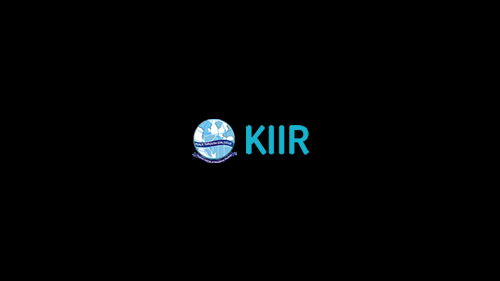













_1627626452.jpg)
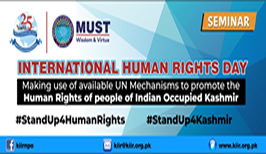
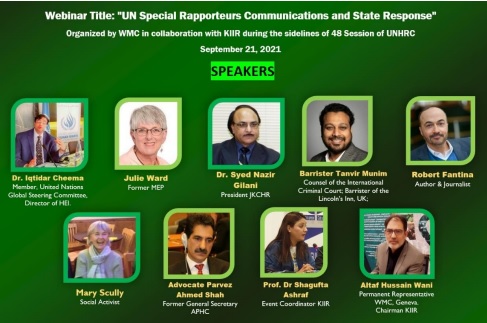
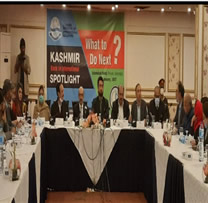
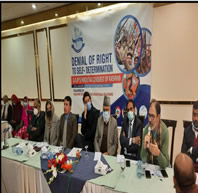
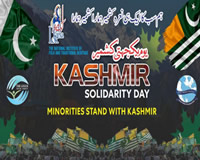
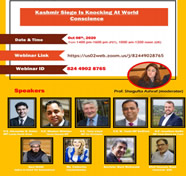
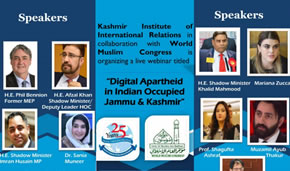
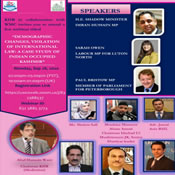
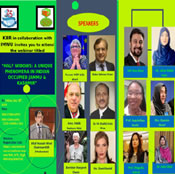
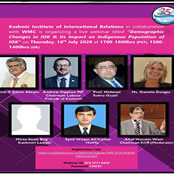
_1627627084.jpg)
